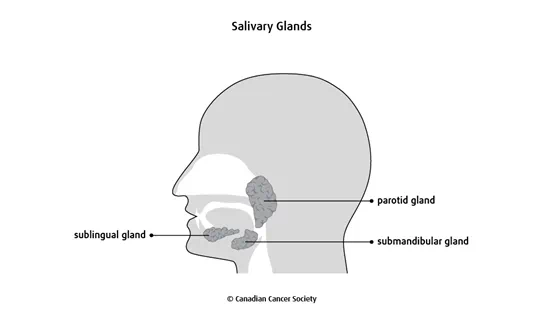What is salivary gland cancer?
Salivary gland cancer starts in the cells of the salivary glands. A cancerous (malignant) tumour is a group of cancer cells that can grow into nearby tissue and destroy it. The tumour can also spread (metastasize) to other parts of the body.

The salivary glands are found in the head and neck. They make and release a fluid called saliva. Cells in the salivary glands sometimes change and no longer grow or behave normally. These changes may lead to non-cancerous (benign) tumours such as pleomorphic adenoma and Warthin tumour. But in some cases, changes to cells in the salivary glands can cause cancer. The most common salivary gland cancer is mucoepidermoid carcinoma (MEC), which usually develops in a parotid gland. The second most common salivary gland cancer is adenoid cystic carcinoma, which usually develops in a minor salivary gland. Many types of rare types of salivary gland cancer can also develop. These include different types of carcinoma, adenocarcinoma and lymphoma.
